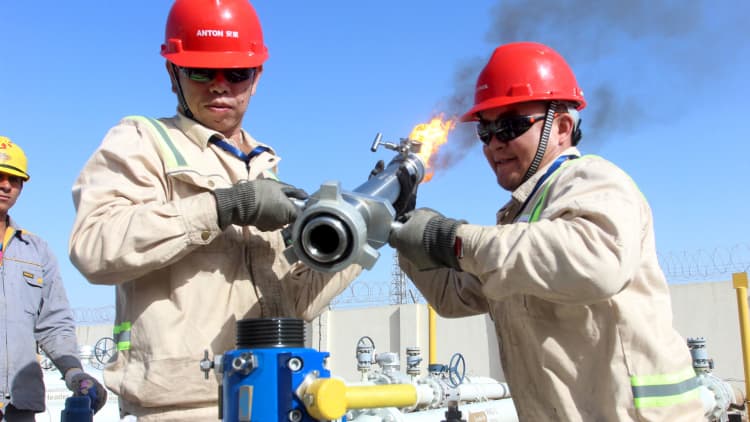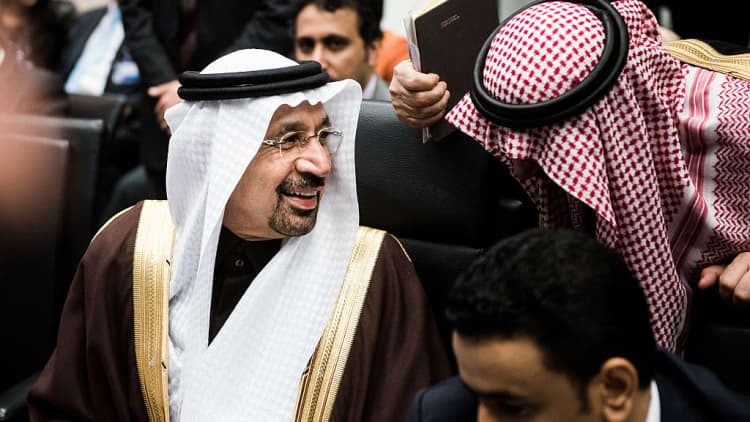
Oil producers suggested on Monday that they're making progress toward extending output cuts that have propped up the market, but the bullish signals had a limited impact on crude prices.
Oil prices bounced in early morning trade after the Saudi energy minister said he expected a six-month deal to limit production would be extended through 2017 and possibly into next year. Russia, the biggest contributor to cuts by 11 non-OPEC members, also said it was holding talks about extending the accord.
After losing some steam, futures once again rallied after Kuwait's energy minister made similar comments just before 9 a.m. ET.
But that rebound also failed to hold amid ongoing concerns about U.S. crude supply and stockpile levels. International benchmark and crude both fell to session lows below $49 and $46 a barrel, respectively. WTI ultimately eked out a gain of 21 cents, or about 0.5 percent, on the day.
The Organization of the Petroleum Exporting Countries and other exporters agreed to cut output by 1.8 million barrels a day late last year in order to shrink brimming global crude stockpiles. With inventories still elevated, the group is under pressure to prolong — and possibly deepen — the output cuts when it meets on May 25.
The market was simply not impressed with Monday's pronouncements and has now fallen into a cycle of selling, said long-time oil bear John Kilduff, a partner at energy hedge fund Again Capital.
"We're five months into this deal, almost six, and we're just not seeing a whole lot of progress being made. They're just out of bullets verbally and in actuality," he told CNBC.
"This is the biggest failure of their verbal interventions since last November" when OPEC agreed to cut output, Kilduff said, referring to the group's attempts to talk up oil prices.
While compliance with the deal among OPEC members has been historically high, exports have not fallen in lockstep with production, limiting the accord's impact, ClipperData Director of Commodity Research Matt Smith told CNBC on Friday.

Oil prices have fallen for three straight weeks on signs that oil production is rising in the United States and Libya. The losses accelerated last week as crude prices fell through technical levels, sparking a flash crash that brought WTI to a nearly six-month low of $43.76.
Naeem Aslam, chief market analyst at trading firm ThinkMarkets, said the bounce in oil prices earlier on Monday was largely due to technical signals, as oil prices fell into oversold territory, meaning they were trading below their true value.
"In order for us to have any faith in the current upward move, we need to see the price breaking the level of 48.32 and also its 200-day moving average," he wrote in a research note. "As long as we are staying below the 200-day moving average, we think the floor is open towards the downside and we may test the support at 42.18."
To be sure, many market watchers — including billionaire oilman Harold Hamm — think the cuts will be more effective once the summer driving season ramps up, though concerns have emerged lately about weak gasoline demand.
Watch: Slowing oil demand in Asia



